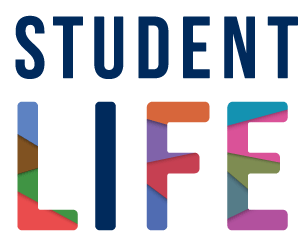
Posted on May 17, 2022
By Samantha Lizardo
Having a good support network can help you develop your strengths and set and achieve goals. Mentorship can be a great way to gain that kind of support.
Mentorship is a mutual relationship based on the guidance of a mentor and the development of a mentee. A mentor shares their knowledge and insight about their experience in a specific area such as a career or program of study. While a mentee has specific goals and questions they’d like to explore in that area. But from either side of the relationship, both a mentor and mentee learn from each other and enjoy the benefits of mentorship.
“There are so many benefits to mentorship – on both sides,” shares a past mentorship student. “Being a mentor or a mentee is truly a fulfilling relationship and provides you with so much insight on other people, jobs, cultures, interests, and much more!”
In whatever kind of goals you need support in or experience you’d like to share, there are many different types of mentorship opportunities and benefits to explore.
Types of mentors
Peer mentors are fellow students with experience in a specific interest or program. For example, an upper-year student from a specific program may mentor a first-year student. They can help students navigate program requirements and course content, develop study strategies and more.
Alumni mentors are past U of T students who can share their experience on navigating life during and after U of T, as well as other interests. They can help current students explore resources and opportunities, plan their career and more.
Career mentors are working professionals with experience in a specific role or industry. They can help students explore a specific career path and offer their insight on topics such as working in the field, application and interview processes, industry or company culture and more.
Benefits of having a mentor
Not only can a mentor help you set and achieve goals, but they can also offer feedback and encouragement to help you grow and feel more confident in your pursuits.
Building a relationship with a mentor can also help you practice your communication skills and build your network. They can connect you with potential opportunities or other individuals who can also offer their perspective and support.
Having a mentor can also help you grow your self-awareness and leadership skills. You’re in charge of your learning and your mentor is there to support you. Throughout your journey you’ll learn more about what you want to achieve and how you’d like to be supported.
Benefits of being a mentor
As a mentor, you get to share your knowledge and experience to help others achieve their goals. But you also get to develop a variety of skills that can help enhance your own career and learning.
Just like when you have a mentor, you also get to practice your communication and leadership skills as you transfer your knowledge and provide guidance. You also get to reflect on your own development and learn how to support others with your strengths.
As you connect your mentee with contacts in your network, they can also help you expand your own. When you join a mentorship program, you’ll meet fellow mentors and learn more about mentorship techniques to support you.
Your mentorship experience is a great addition to your resume and Co-Curricular Record. On top of the skills you’ve gained, the experience also demonstrates your values in relationship building and helping others succeed.
Mentorship opportunities & supports
Whether you’re interested in finding a mentor or becoming one, there are lots of mentorship opportunities across U of T.
Use the Mentorship Database to find a program based your year of study, program and mentorship interests.
If you’re looking for a mentor, take the Finding Your Own Mentor e-course to learn more about how to find an effective mentor. Or check out Maximizing Mentorship workshops to explore how to make the most of a mentorship experience. Book an appointment with a student mentorship education assistant for support with navigating mentorship programs.
If you’re in a peer support role, check out the Mentorship Foundations Training for workshops to help you develop your skills and find community with other peer mentors and advisors on campus.
For resources on developing a mentoring program, roles, training and more, check out the Mentorship & Peer Programs resource library.
Contact mentorship@utoronto.ca if you have any questions.




